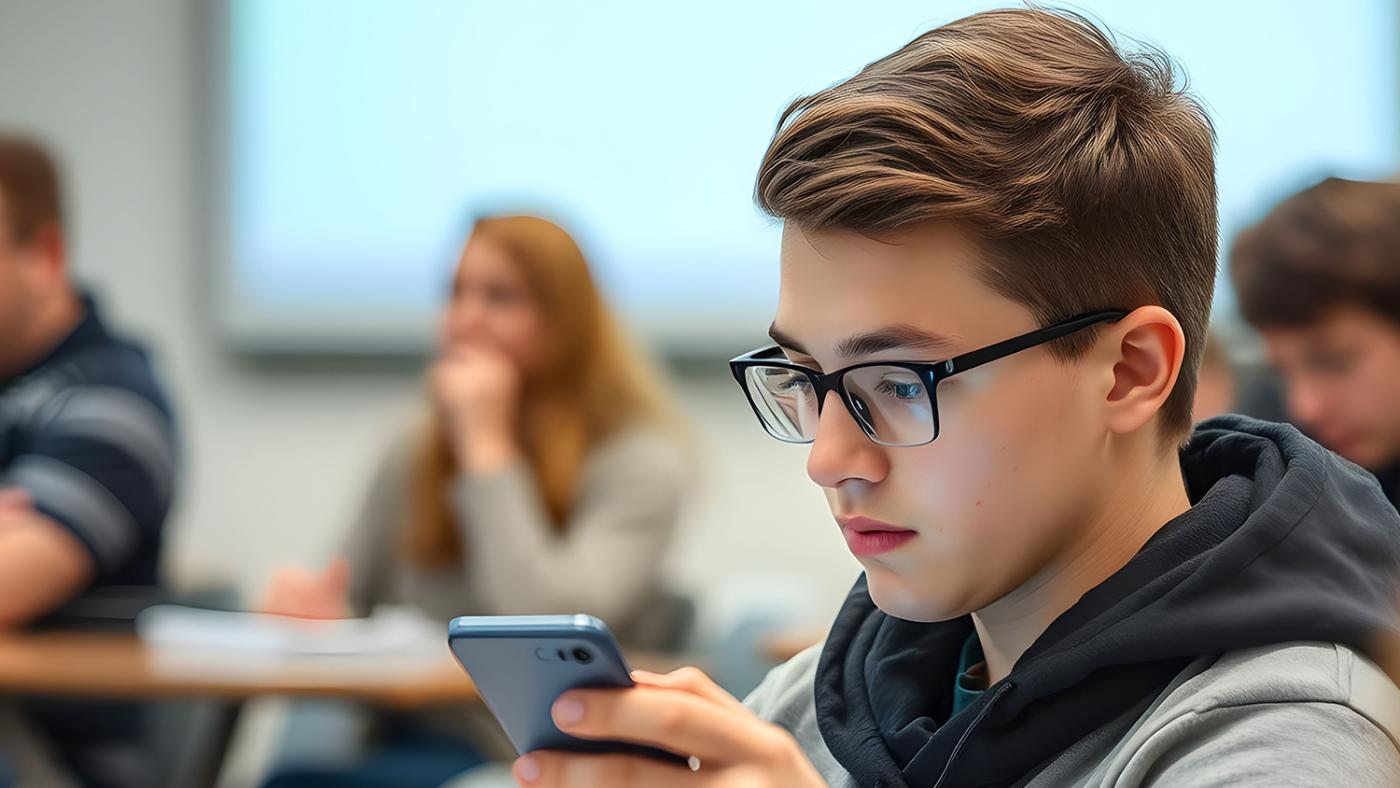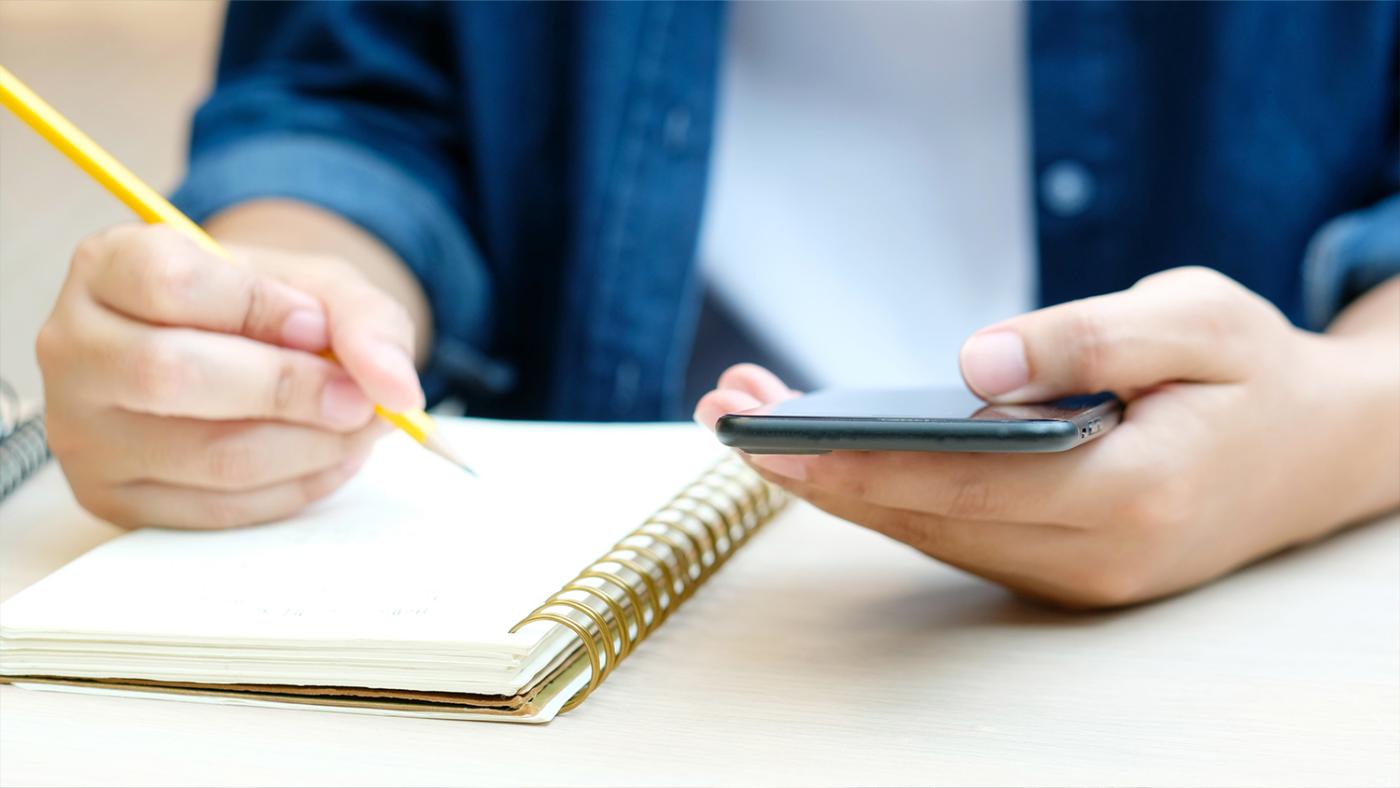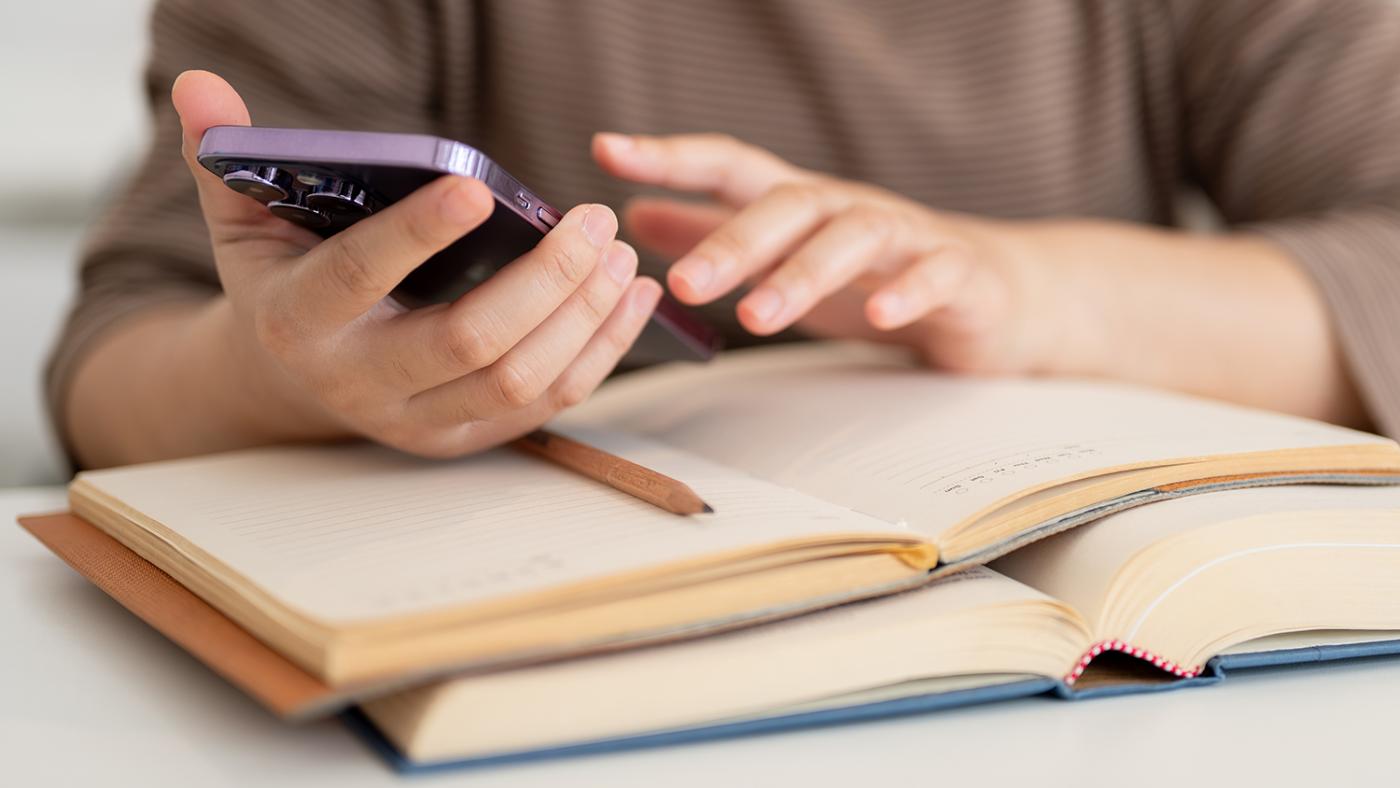Does the university need to have rules for smartphones
Mobile on the table or in your bag? That is the question

If there is one object that characterises life in recent years, it is the smartphone. Apart from a few brave resistance heroes, almost everyone has one, which is consulted dozens of times a day. To stay in touch with friends, see when the train leaves or check whether you can get home dry.
Smartphones are also indispensable at university: group projects are organised via WhatsApp, two-factor authentication is required to log in to Blackboard, and without the UU app, you cannot enter the University Library during exam weeks. Yet, discomfort is growing. The question is increasingly being asked: is it healthy to have such a digital all-rounder always within reach? And doesn't it offer a more attractive alternative to the sometimes tough study material?
An hour of uninterrupted reading? Nobody can do that anymore
According to Bastiaen Huijnen, Master's student in Legal Research and our campus columnist, the answer is clear: smartphones have a negative effect on our ability to concentrate.
"No one can read a text for an hour without checking their smartphone, unless it's really stressful,"he says. "Checking apps such as Instagram, WhatsApp, Snapchat or even your email gives you an undeserved feeling of happiness that a 30-page paper can't compete with."
He also sees how strong the temptation is in study groups. "During a work lecture, people talk about things in the group chat that have nothing to do with the content of the lecture. I find that bizarre. On the one hand, it's funny, but it is your study programme."
He believes that the university should do more to combat the intertwining of digital devices and the study environment. "There is real damage. I feel sorry for my sixteen-year-old nephew, who already has to deal with this."
My screen time went from six to two hours
Mees (23), a master's student in Spanish Language & Culture, recognises himself in the picture Bastiaen paints. “I was really addicted to my smartphone. When I had a difficult assignment to do, I checked it every few minutes. As a result, I was always finishing just in time.”
What kept drawing him back to his screen? “Notifications, Instagram, Twitter, and if there was nothing new there, even the NOS app.” A few big deadlines made him aware of his behaviour. Now he puts his phone in another room when he has to study. “My screen time has gone from six to two hours a day. It feels like I'm back in control.”

You can only focus on one thing at a time
Stefan van der Stigchel, professor of Psychology at Utrecht University, also sees how students struggle with distractions. “Students often don't realise it themselves, but as a lecturer you see quite a lot. I once saw a student playing a racing game on his iPad during a lecture. I made a joke about it, but you can't address the whole room, as that often creates an unpleasant atmosphere.”
According to him, the cause is clear: “If you want to follow a lecture and do it well, you keep your smartphone out of sight. You can only focus on one thing at a time. Distractions cause you to lose concentration, and we know that the areas of the brain involved in information storage are less active during moments of distraction.”
According to Van der Stigchel, the smartphone is also literally designed to connect with the characteristics of our brain. “The brain is a learning system that loves new information. If it's not there for a moment, we feel bored. And what is an endless source of new stimuli that we always have with us? That's right: the smartphone.”
He himself is not immune to temptation. “I follow a lot of bands, so I know that when I open my phone, there will be news about a new album or concert. It's almost impossible to resist.”
According to him, checking your smartphone becomes a habit over time, regardless of whether you really need to: “You don't go on a diet with a packet of biscuits next to you. One moment of mental weakness, and you eat them.”
His solution? "Just switch it off. That creates distance between yourself and the behaviour. Then the automatic response disappears. You simply pick up your phone less often."
He also thinks that universities could do more: ’Two-factor authentication is important for security, but a campaign against smartphone use during lectures could be quite effective. Perhaps a Wi-Fi-free zone in the libraries, although I don't know if that's feasible. But fundamentally, something needs to be done about the design: endless scrolling or getting rid of the like button. There are also legislative proposals for this in the European Parliament, but in the Netherlands we tend to see that as patronising."

No smartphones or laptops in my class
Lotte Berk, a psychology lecturer at University College Utrecht, decided to ban smartphones and laptops from her classes altogether. "They had a negative impact on the classroom atmosphere. When smartphones are on the table, people sneak a peek at them from time to time. That distracts me and others."
There was some resistance at first, but now students accept her rule: devices stay in their bags. "I see it as a basic rule, just like responding respectfully or listening to each other. You give up a little individual freedom for the sake of the group atmosphere. I always say: come back halfway through the block if it really doesn't work for you, but no one ever comes back."
According to Berk, the grades are not demonstrably better, but the atmosphere has improved. "There is real attention during discussions and during explanations. Students even say that they find it easier to stay focused."